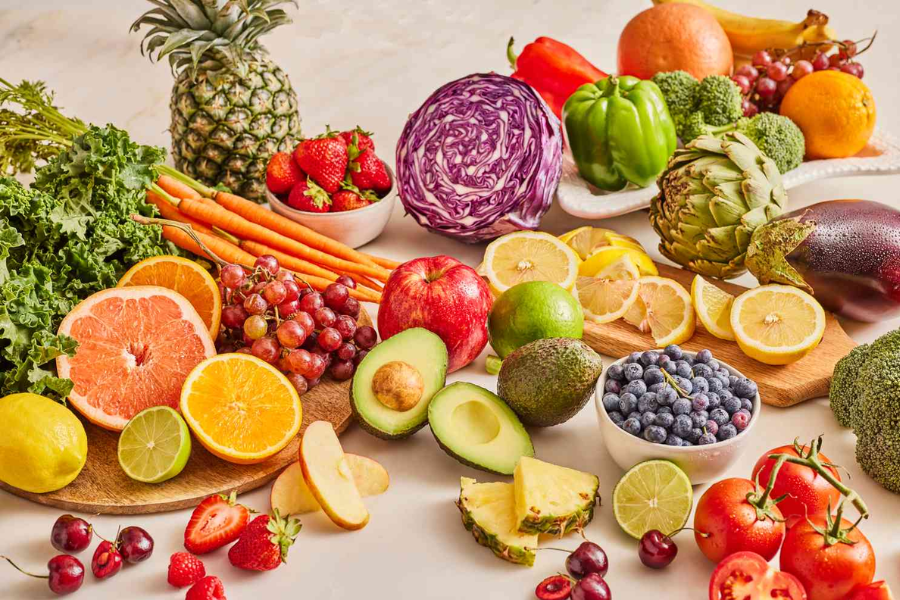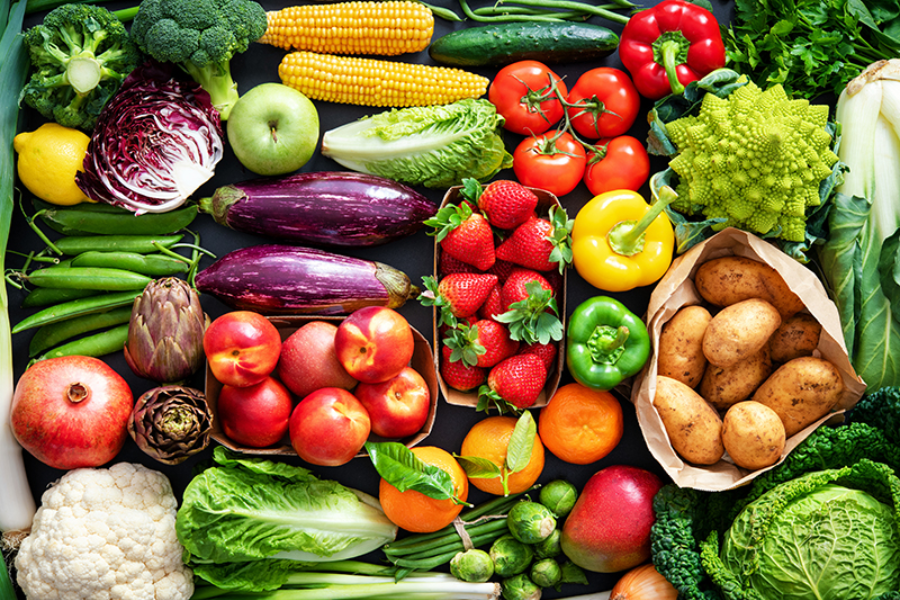Nowadays, the saying “regular” has transformed into a famous articulation related to prosperity, legitimacy, and natural discernment. Regardless, what unequivocally does it mean when something is named as regular? This article digs significantly into the possibility of nature, exploring its various perspectives, benefits, and ideas for the two buyers and the planet. As we adventure through this subject, we’ll reference pieces of information from Insider Approaches to give a decent perspective.
What is Organic?
Regular implies things came up with through normal developing methodologies that emphasis on the usage of typical substances and cycles to foster, collect and raise animals. The fundamental target of regular development is to keep up with and work on the adequacy of organic frameworks and living things, from the tiniest bugs to people.
Principles of Organic Farming
Organic farming is grounded in several key principles:
- Health: Organic farming aims to sustain and enhance the health of soil, plants, animals, and humans. This is achieved by avoiding synthetic pesticides and fertilizers.
- Ecology: Organic farming works with natural systems and cycles, promoting biodiversity and ecological balance.
- Fairness: Organic farming practices are designed to promote fairness and respect for all living things, ensuring a good quality of life for farmers and workers.
- Care: Organic farming takes a precautionary approach to environmental management, aiming to protect the health and well-being of current and future generations.
The Benefits of Organic Products
Health Benefits
One of the fundamental reasons purchasers select normal things is the obvious clinical benefits. Regular food assortments are freed from designed engineered substances, which can be pernicious to human prosperity. Studies have shown that normal food assortments habitually contain more raised degrees of explicit enhancements, including cell fortifications, which are invaluable for by and large prosperity.
Environmental Benefits
Normal developing practices are expected to reduce pollution, safeguard water, decline soil crumbling, increase soil extravagance, and use less energy. By avoiding designed pesticides and composts, normal development shields the environment and advances biodiversity. This is particularly critical in a period where normal viability is ending up being dynamically fundamental.
Economic Benefits
While normal things can be more exorbitant than their ordinary accomplices, they in like manner add to the monetary thriving of farmers. Normal developing practices habitually require more work and the leaders, making positions and supporting nation economies. Besides, clients will pay a premium for regular things, which can incite higher advantages for farmers.
The Challenges of Organic Farming
Certification and Regulation
One of the major challenges facing the regular business is the certification cycle. Procuring regular authorization can be drawn-out and exorbitant. Farmers ought to agree with serious standards and go through conventional assessments to ensure consistency. This can be a block for restricted scope farmers who probably won’t have the resources for investigating the affirmation collaboration.
Market Competition
The creating distinction of normal things has also incited extended challenges keeping watch. Gigantic organizations are entering the normal market, which can descend on additional humble, independent farmers. This resistance can drive down costs and reduce net incomes for restricted scope normal producers.
Consumer Education
Despite the creating interest for normal things, there is at this point a shortfall of understanding among clients about what nature really suggests. Misinformed decisions and misrepresentation can incite chaos and attentiveness. Subsequently, educating buyers about the benefits and principles of normal development is essential for the returns with advancement of the business.
The Role of Insider Ways in Promoting Organic Awareness
Insider Ways expects a significant part in propelling care and understanding of normal things. By giving bare essential articles and encounters into the regular business, Insider Ways educates customers about the benefits and hardships of normal development. This not simply sponsorships the improvement of the regular market yet also empowers purchasers to seek after informed choices that line up with their characteristics.
Highlighting Success Stories
Insider Ways expects a significant part in propelling care and understanding of normal things. By giving quick and dirty articles and encounters into the normal business, Insider Ways teaches customers about the benefits and troubles of regular development. This not simply sponsorships the improvement of the regular market yet furthermore empowers purchasers to seek after informed choices that line up with their characteristics.
Providing Practical Tips
As well as highlighting instances of conquering misfortune, Insider Ways in like manner gives practical tips to buyers who need to coordinate more normal things into their lives. From shopping counselors for recipes, these resources simplify it for clients to change to a more normal lifestyle.
The Future of Organic

As care and interest for normal things continue to create, the business is prepared for basic augmentation. Anyway, this improvement ought to be administered warily to ensure that the guidelines of normal development are kept up with. This integrates staying aware of serious authorization standards, supporting restricted scope farmers, and continuing to show clients the benefits of regular things.
Innovations in Organic Farming
The possible destiny of normal development will likely see improvement with advancement and types of progress in sensible practices. This integrates the improvement of new systems for trouble control, soil the board, and yield upset. These progressions will help with chipping away at the efficiency and ampleness of normal development, making it more open and sensible for the two farmers and customers.
Policy Support
Government techniques and rules will moreover expect an essential part coming soon for normal development. Consistent techniques can help with diminishing the limits to license, give financial stimuli to regular farmers, and advance imaginative work in normal cultivation. By laying out an extraordinary system environment, states can help with ensuring the returns with improvement and progress of the normal business.
Conclusion
Understanding nature is basic for seeking after informed choices that benefit both individual prosperity and the environment. Through the guidelines of normal development, the upsides of regular things, and the occupation of stages like Insider Ways, we can see a future where normal practices are the norm rather than the extraordinary case. As the regular business continues to create, it is key to keep up with its middle guidelines and continue to train buyers about the meaning of normal things.
By picking nature, clients are chasing after a superior choice for themselves as well as supporting a sensible and moral provincial system. Insider Ways will continue to be a huge resource in this journey, giving encounters, instances of conquering difficulty, and sensible tips to help everyone with exploiting normal things and practices.
Facts
- Definition of Organic: Organic products are created through farming methods that use natural substances and processes.
- Key Principles: Organic farming principles include health, ecology, fairness, and care.
- Health Benefits: Organic foods are free from synthetic chemicals and often contain higher levels of nutrients.
- Environmental Benefits: Organic farming reduces pollution, conserves water, reduces soil erosion, increases soil fertility, and uses less energy.
- Economic Benefits: Organic farming supports rural economies and can lead to higher profits for farmers due to premium pricing.
- Certification Challenges: Organic certification is time-consuming and costly, posing a barrier for small-scale farmers.
- Market Competition: Increased competition from large corporations can pressure small, independent farmers.
- Consumer Education: There is a need for better consumer understanding of what organic means and its benefits.
- Insider Ways’ Role: Insider Ways educates consumers, highlights success stories, and provides practical tips for incorporating organic products into daily life.
- Future of Organic Farming: Innovations in sustainable practices and supportive government policies will play a significant role in the growth of organic farming.
Summary
Organic living has become synonymous with health, sustainability, and environmental consciousness. This article explores the concept of organic products, particularly those produced through organic farming methods that prioritize natural substances and processes. Key principles of organic farming include health, ecology, fairness, and care. The benefits of organic products span health, environmental, and economic realms. Challenges in organic farming include certification and regulation, market competition, and consumer education. Insider Ways plays a crucial role in promoting organic awareness, highlighting success stories, and providing practical tips. The future of organic farming looks promising with innovations in sustainable practices and supportive policies.
FAQs
Q1: What does “organic” mean in terms of food and products?
A1: Organic refers to products produced through farming methods that prioritize natural substances and processes, avoiding synthetic chemicals and promoting the health of ecosystems.
Q2: What are the main principles of organic farming?
A2: The main principles of organic farming are health, ecology, fairness, and care.
Q3: Are organic foods healthier than non-organic foods?
A3: Organic foods are free from synthetic chemicals and often contain higher levels of certain nutrients, including antioxidants, which are beneficial for overall health.
Q4: How does organic farming benefit the environment?
A4: Organic farming reduces pollution, conserves water, reduces soil erosion, increases soil fertility, and uses less energy, thereby protecting the environment and promoting biodiversity.
Q5: Why are organic products more expensive than conventional ones?
A5: Organic farming requires more labor and management, and organic products are often priced higher due to the premium consumers are willing to pay for them.
Q6: What are the challenges faced by organic farmers?
A6: Challenges include the costly and time-consuming certification process, competition from large corporations, and the need for better consumer education about organic products.
Q7: How does Insider Ways support the organic movement?
A7: Insider Ways promotes organic awareness by providing detailed articles, highlighting success stories, and offering practical tips for incorporating organic products into daily life.
Q8: What is the future outlook for organic farming?
A8: The future of organic farming looks promising with advancements in sustainable practices, supportive government policies, and increasing consumer demand for organic products.
Q9: Can organic farming practices be scaled up to meet global food demands?
A9: With innovations in sustainable practices and supportive policies, organic farming can become more efficient and accessible, helping to meet global food demands while maintaining environmental health.
Q10: How can consumers make informed choices about organic products?
A10: Consumers can make informed choices by understanding the principles of organic farming, looking for certification labels, and staying educated about the benefits and challenges of organic products through resources like Insider Ways.

Leave a Reply